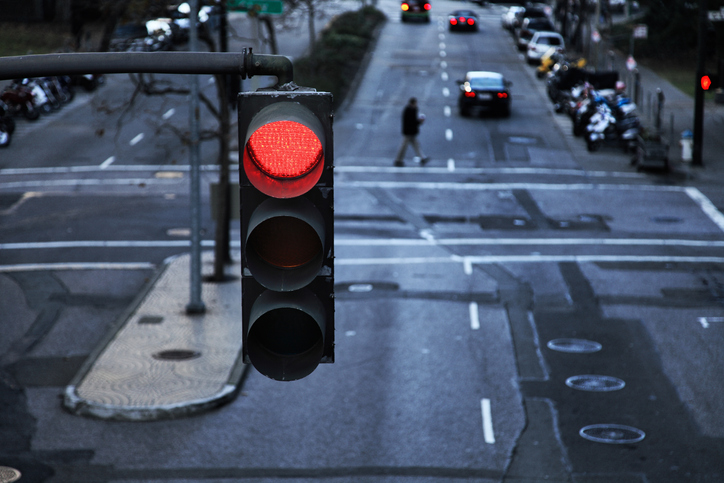Traffic lights serve as critical components to manage the flow of vehicles and pedestrians to maintain order and safety on the roads. However, when these signals malfunction, the consequences can be severe, leading to confusion, hazardous driving conditions, and ultimately, potentially serious accidents. Defective traffic lights, whether due to electrical failures, programming errors, or physical damage, often result in side-impact collisions at intersections where drivers are unsure of who has the right of way and when to proceed. These incidents not only highlight the importance of regular maintenance and prompt repair of traffic control devices but also underscore the vulnerability of road safety when traffic lights become defective.
A traffic signal may be considered defective if it is not operating correctly, such as showing green lights in multiple directions simultaneously, having a very short signal cycle that does not allow enough time to pass safely, or if the signal is completely out. In Texas, as in other places, such malfunctions are expected to be reported and addressed promptly to prevent accidents.
In the event of an accident caused by a defective traffic light, it would typically be investigated by the authorities, and the findings could potentially be used in legal settings to determine liability or in policy settings to improve traffic safety and maintenance of the city’s infrastructure.
Legal Claims That Can Arise As A Result of Defective Traffic Signals
The government entity responsible for maintaining traffic signals in Texas (the Texas Department of Transportation or “TxDOT”) could potentially face legal claims if a defective traffic signal leads to an accident. Here are some legal actions and issues that may arise:
- Negligence Claims:
- Plaintiffs may allege that the entity responsible for maintaining the traffic signals was negligent in their duty to ensure the proper functioning of the signals.
- To prove negligence, it typically must be shown that the entity had a duty to maintain the signals, that it breached that duty, that the breach caused the accident, and that damages resulted.
- Personal Injury Lawsuits:
- Individuals harmed in accidents caused by defective traffic signals may file personal injury lawsuits seeking compensation for their injuries, medical expenses, lost wages, pain and suffering, and other damages.
- Wrongful Death Claims:
- If a defective traffic signal results in a fatality, the family of the deceased may file a wrongful death claim against the responsible government entity.
- Property Damage Claims:
- Owners of vehicles or other property damaged as a result of an accident caused by a defective traffic signal may seek compensation for repairs or replacement of their property.
- Governmental Claims and Immunities:
- Government entities in Texas, like elsewhere, often have sovereign immunity, which can limit or prohibit lawsuits against them. However, under the Texas Tort Claims Act, limited waivers of immunity exist for certain situations, including injury caused by the condition or use of tangible personal or real property.
- Plaintiffs must be knowledgeable about the specific procedures for claims against government entities, which often require giving notice of the claim within a certain period of time before filing a lawsuit.
- Class Action Lawsuits:
- If defective traffic signals affect a large number of people, a class action lawsuit could potentially be filed on behalf of all those who were similarly affected.
- Product Liability:
- If the traffic signal was defective due to a manufacturing or design defect, a product liability claim could be brought against the manufacturer of the traffic signal equipment.
- Contract Issues:
- If the maintenance of the traffic signals was outsourced to a private company, that company could be liable under contract law if they failed to maintain the signals as agreed upon.
- Administrative Actions:
- In some cases, the resolution of such matters may involve administrative remedies, such as filing a complaint with the TxDOT, which could lead to internal investigations and remedial actions.
- Insurance Claims:
- Parties affected by the defective signals might also seek compensation through insurance claims, and the insurance companies might turn around and seek subrogation from the responsible entity.
Takeaway
When considering legal actions for defective traffic signals, it is important to consult with an attorney experienced in personal injury or governmental claims. They can advise on the specifics of the case, including any special notice requirements, statute of limitations, and the appropriate venue for filing any claims or lawsuits. Contact Ceja Law Firm, PLLC for an initial complimentary consultation regarding your potential case.










